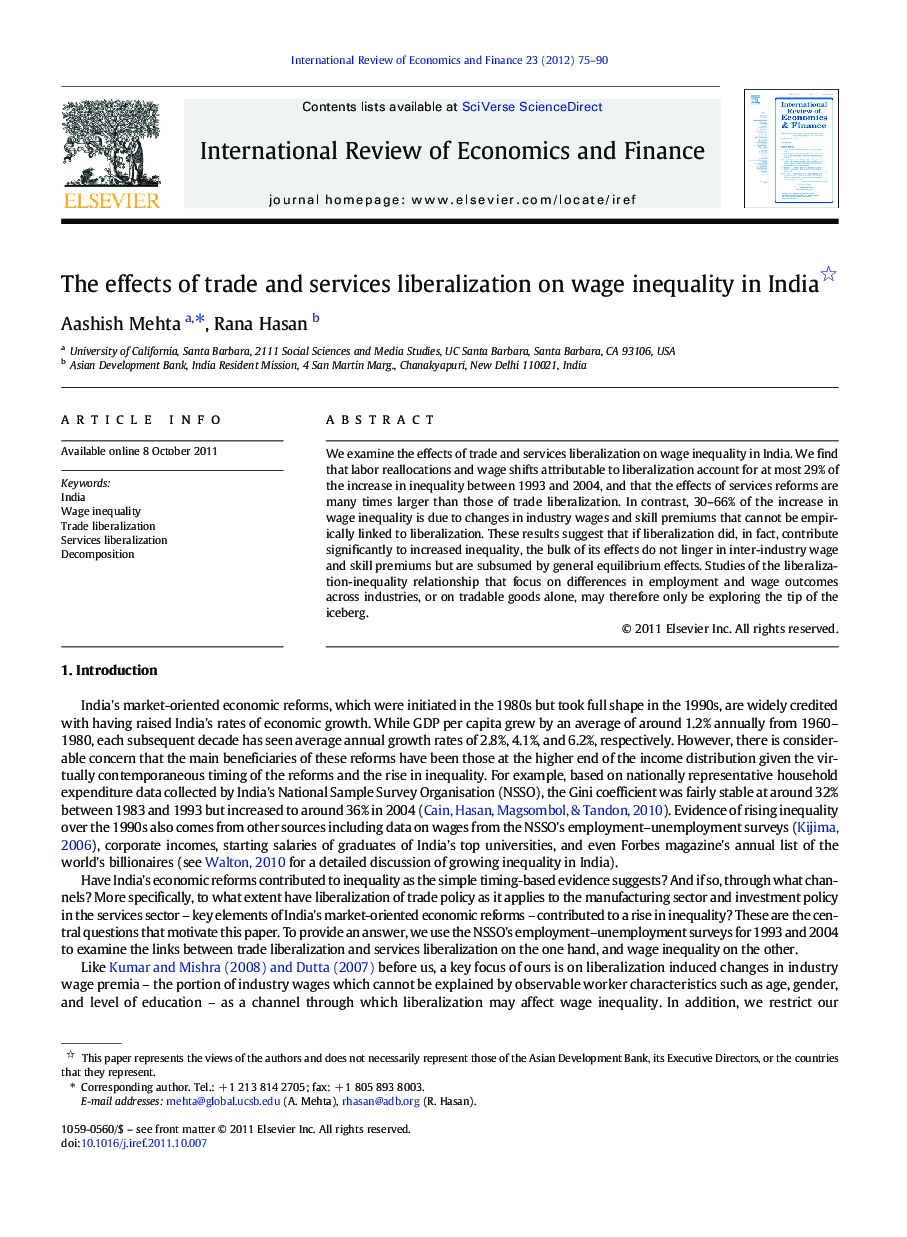| Article ID | Journal | Published Year | Pages | File Type |
|---|---|---|---|---|
| 5083921 | International Review of Economics & Finance | 2012 | 16 Pages |
Abstract
We examine the effects of trade and services liberalization on wage inequality in India. We find that labor reallocations and wage shifts attributable to liberalization account for at most 29% of the increase in inequality between 1993 and 2004, and that the effects of services reforms are many times larger than those of trade liberalization. In contrast, 30-66% of the increase in wage inequality is due to changes in industry wages and skill premiums that cannot be empirically linked to liberalization. These results suggest that if liberalization did, in fact, contribute significantly to increased inequality, the bulk of its effects do not linger in inter-industry wage and skill premiums but are subsumed by general equilibrium effects. Studies of the liberalization-inequality relationship that focus on differences in employment and wage outcomes across industries, or on tradable goods alone, may therefore only be exploring the tip of the iceberg.
Related Topics
Social Sciences and Humanities
Economics, Econometrics and Finance
Economics and Econometrics
Authors
Aashish Mehta, Rana Hasan,
